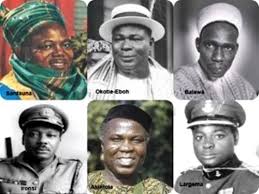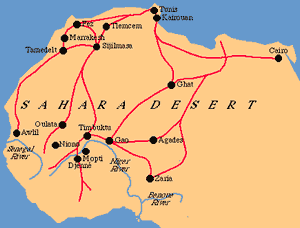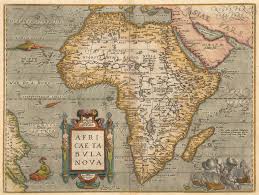The 1966 Nigerian Military Coup: A Turning Point in the Nation’s History

The 1966 Nigerian Military Coup: A Turning Point in the Nation’s History
Discover how the 1966 Nigerian military coup disrupted civilian rule, ignited political tensions, and became a defining moment in the country’s post-independence history.
On January 15, 1966, Nigeria witnessed its first military coup d'état, an event that would set the country on a path of political instability, ethnic tensions, and ultimately, civil war. This coup, orchestrated by a group of young military officers, remains one of the most debated events in Nigeria’s history. It not only ended the First Republic but also laid the foundation for successive military interventions in Nigerian politics.
Background: A Fragile Democracy
Before the coup, Nigeria operated as a parliamentary democracy following its independence from Britain in 1960. However, the system was deeply flawed, marred by corruption, ethnic rivalries, and political unrest. The country was divided into three main regions:
- Northern Region: Dominated by the Hausa-Fulani and controlled by the Northern People's Congress (NPC).
- Western Region: Predominantly Yoruba, led by the Action Group (AG).
- Eastern Region: Igbo-majority region, led by the National Council of Nigerian Citizens (NCNC).
The 1964 federal elections and the 1965 Western Region elections were heavily rigged, leading to widespread protests, particularly in the West, where the "Operation Wetie" riots erupted. These political crises, coupled with allegations of massive corruption, created a breeding ground for radical change.
The Coup: Execution and Key Figures
A group of young army officers, led by Major Chukwuma Kaduna Nzeogwu and Major Emmanuel Ifeajuna, planned and executed a coup to overthrow the civilian government. Their main objectives were to:
- End corruption and political instability.
- Remove the ruling elite.
- Establish a new national government free from ethnic favoritism.
Key Events:
- Prime Minister Sir Abubakar Tafawa Balewa was kidnapped and later killed.
- Premier of the Northern Region, Ahmadu Bello, was assassinated.
- Premier of the Western Region, Samuel Ladoke Akintola, was also killed.
- Finance Minister Festus Okotie-Eboh was murdered.
- Brigadier Ademulegun and other senior military officers were executed.
The coup plotters successfully seized power in Kaduna, Ibadan, and Lagos but failed to capture key military formations in the Midwest and Eastern Region.
Immediate Aftermath: Aguiyi-Ironsi Takes Control
Though the coup did not go exactly as planned, it led to the end of civilian rule. Major General Johnson Aguiyi-Ironsi, the highest-ranking military officer, emerged as Nigeria’s first military Head of State after Acting President Nwafor Orizu announced the voluntary transfer of power to the military.
Ironsi attempted to stabilize the country by abolishing the federal structure and replacing it with a unitary government. However, this move was deeply unpopular, particularly in the North, where many saw it as an attempt to consolidate Igbo dominance.
Ethnic Tensions and the July Counter-Coup
The ethnic composition of the coup plotters and their victims fueled widespread suspicions that the coup was an Igbo conspiracy. Of the 22 high-profile casualties, only one was of Igbo origin, while the majority were Northern and Western leaders. This perception of ethnic bias led to increasing hostility against the Igbo population.
In July 1966, a counter-coup was staged by Northern military officers. General Ironsi was overthrown and killed, along with many Igbo officers. Lieutenant Colonel Yakubu Gowon emerged as the new Head of State. This counter-coup marked the beginning of mass killings of Igbos in the North, setting the stage for the Nigerian Civil War (1967–1970).
Lasting Impact of the 1966 Coup
- Militarization of Nigerian Politics: The coup ushered in an era of military rule that lasted until 1999, with intermittent civilian governments.
- End of Federalism: The introduction of a unitary system by Ironsi altered the structure of governance and fueled secessionist movements.
- Ethnic Division and Pogroms: The aftermath of the coup saw mass killings of Igbos in the North, further deepening ethnic tensions.
- Prelude to the Biafran War: The sequence of events following the coup directly contributed to the outbreak of the Nigerian Civil War (1967–1970).
Conclusion
The 1966 coup was a watershed moment in Nigerian history. While it was intended to cleanse the country of corruption and political instability, it instead escalated ethnic tensions and led to years of military rule and civil conflict. The lessons from this dark chapter serve as a reminder of the dangers of ethnic politics, the need for national unity, and the importance of democratic governance.


